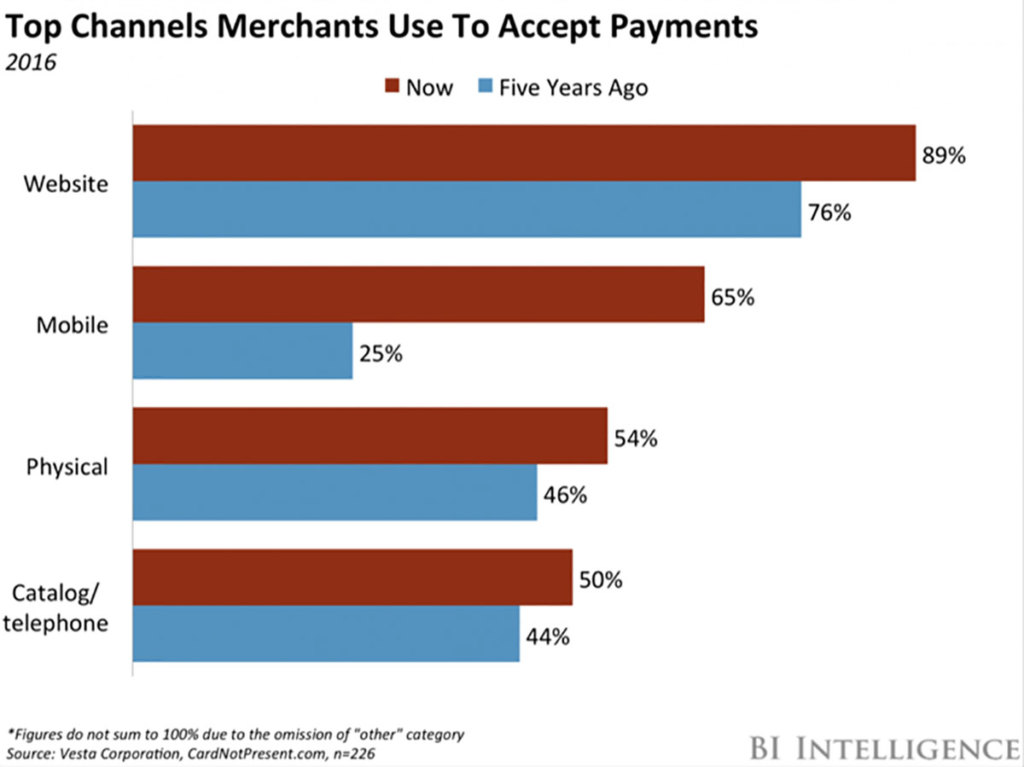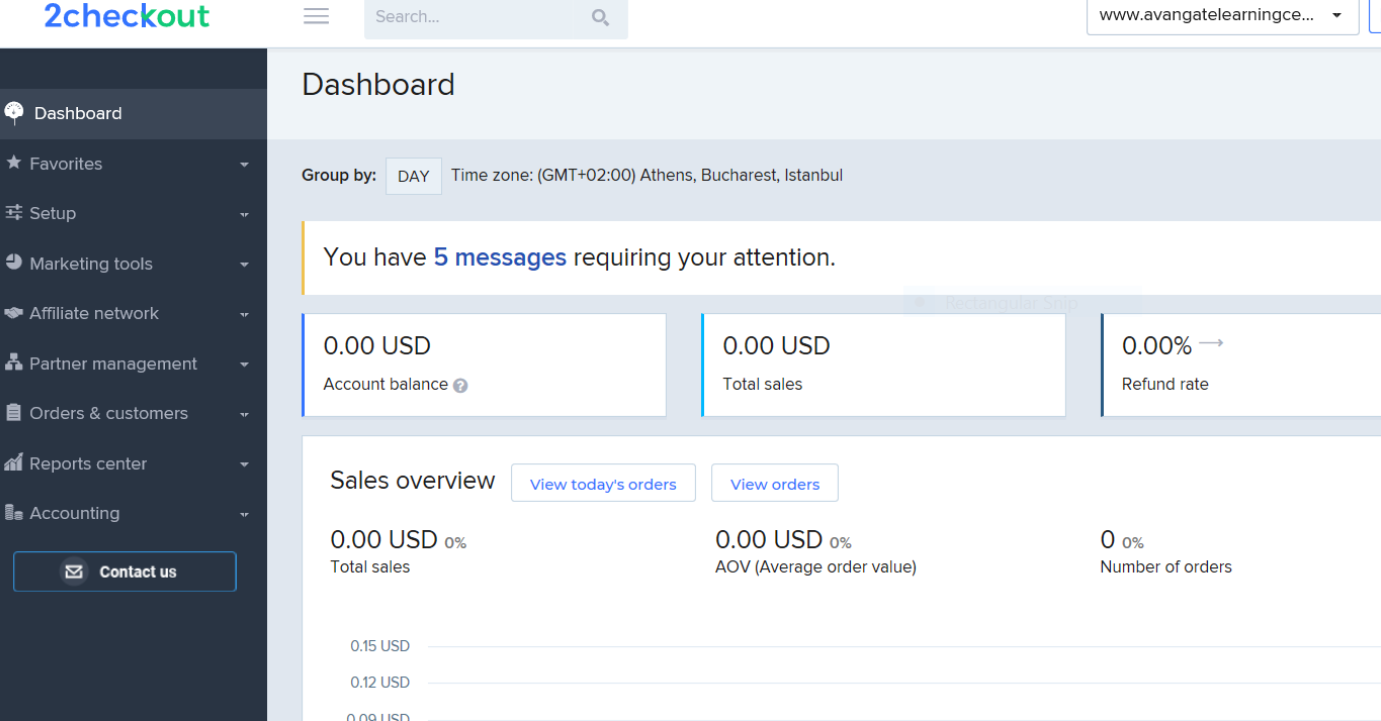The umbrella term covers a variety of transaction services that help businesses trade goods and receive payments on the web. In a fashion similar to in-store cashiers, online payment systems approve and gather payments on your checkout page, and set up channels for these payments to reach your bank account. Given that the majority of today’s shoppers prefer to buy online, payment gateways are critical to the success of any merchant.
A third-party provider usually hosts the solutions and used as logistic mediators between vendors and customers. In the ideal scenario, the services adopt your preferred payment method, enable and approve the exchange of payment data, and assume full responsibility for the compliance and security of your transfers. To do so, they charge a fixed percentage of each transaction. While some of them also impose a monthly subscription for monitoring and maintenance.
Before we go deeper into the subject of online payment services, note that not all payment gateways will be suitable for your business. Instead, you’ll need to shortlist only the systems that fit your line of operation, namely, those designed for your location, market, targeted buyers, and preferred currencies.
Payment Gateway Services FAQ
- Do I need a merchant account?
- Do I have to work with a payment provider based in my country?
- How can we integrate payments with our website?
- Are payment gateways, in fact, payment processing services?
- Are there any extra fees?
- Can I accept payments in various currencies?
- Is online payment processing secure?
- Can I customize a payment solution?
- Are my preferred online payment methods accepted?
- What can I do if the payment is not successful?
- How much time does it take to receive a payment?
- Can I connect the payment gateway with other systems I am using?
- Can I use payment gateways for in-store payments?
- Can I use the payment gateway for personal transactions?
- Does it make sense to use multiple payment gateways?
- Which are the leading payment gateway systems?
- How much does payment gateway software cost?
- Are there free payment gateways?
- How can a payment gateway help me?
To help you make the right choice, we prepared this comprehensive guide on payment gateway providers where we also compared some of the best providers.

Payment processing is one of the most essential aspects of selling goods and services, which is why entrepreneurs should understand the options available to them. If you’re exploring the payment gateway market for the first time, the following guide will help you.
Do I Need a Merchant Account?
All business owners need a registered merchant account to accept credit cards and collect payment. Such accounts are usually provided by their credit card processing services.
Similarly, if the business owner decides to replace the platform and entrust compliance with another system, the new provider should be able to manage such an account for the owner. A quick reminder: the service you’re acquiring should be PCI compliant.
Do I Have to Work With a Payment Provider Based in My Country?
Not necessarily, but it is still a smart decision to consider gateways that already cater to your region. To start with, you can explore the gateways used by other companies incorporated in your country, as these are the gateways that maintain the best relationships with local banks. If you are based in Europe, for instance, you can do well with systems designed to cater to the global market, including the EU region such as 2Checkout. On the other hand, if you’re in the United States, you can choose among these top US-based payment gateway providers or opt for PayPal Payments Pro, inarguably the best on the list.
Keep in mind that location is not the only relevant factor; each payment gateway runs on a different business model, and, therefore, supports various payment methods. You may also check their reach, payout frequency, supported currencies, and, of course, pricing.
How can we integrate payments with our website?
The reason why businesses opt for gateways in the first place is that they want to simplify payments. A complex processing system with a troublesome setup will not exactly solve this problem.
Integrating payments with your website should be smooth and straightforward, and ideally in line with your preferred programming language and use cases. An idea could be to look for solutions with open API access, as they enable you to configure your payment interface to adapt to your unique payment scenarios. The more flexibility you’re offered, the better!
Are Payment Gateways, in Fact, Payment Processing Services?
With so much being done to expand the capabilities of payment gateways, it is really easy to confuse them with actual processing platforms. At the basic level, gateways look and perform similarly as a self-hosted processing interface, but there is a substantial difference between payment gateway vs. processor.
For example, with even the best payment processing services, it will be you who gather and analyze payments and then redirect them to your account. With a gateway, on the other hand, compliance and transfer are provided by a third entity (online payment processing companies), so that you don’t worry about transfer delays or, worse, glitches.

Payment gateways and payment processors have different roles in the whole gamut of the customer-to-merchant transaction process.
Are There Any Extra Fees?
The approach of most merchants out there is to make the gateway purchase as cost-efficient as they can, including getting the free alternative where there is one. But are they right?
It doesn’t take much to reveal the hidden costs of cheap software. For instance, after a week or two, you may be required to upgrade to a new plan since the current free plan doesn’t meet your needs.
To avoid such situations, read some reviews and gather knowledge on the service before you subscribe to it. Note that your vendor could charge more for the specific features you need, or impose a compulsory fee for setup and maintenance.
Although the price of your gateway doesn’t guarantee its quality, it has a lot to do with it. Services with higher price tags usually invest more in security, premium navigation, and fast delivery.
Can I Accept Payments in Various Currencies?
To expand their global reach, popular payment gateways process payments in different currencies (with or without additional fees). Some providers even offer checkout in several languages for international buyers.
Multi-currency is a good idea, regardless of how well your business is progressing now. You never know when you’ll need to expand to international markets. For merchants focused on a particular market, it provides great opportunities to sell products in local currencies and to attract customers in and out of their region. One of the best solutions out there for this is 2Checkout. It supports transactions in GBP and EUR as well as USD and CHF. Moreover, you can even request for other currencies should you need it. The platform is manned by 300+ employees in four global offices, servicing more than 17,000 active clients worldwide.
Is Online Payment Processing Secure?
Security is the most essential feature of your future payment gateway system. If not handled properly, it could hinder your work and cause serious damage to your reputation.
To guarantee security (and assume liability in case your data is compromised), payment gateways adhere to several security standards and international compliance policies. These trust factors add credibility to providers to transfer funds online. So, what are these security standards and policies?
The first thing to look for is PCI DSS Level I compliance (Payment Card Industry Data Security Standards). Compare the safeguards unique to each system, like machine learning fraud prevention tools, blacklisting, tokenization, anti-money laundering policies, and 3D Secure authentication, making sure that these don’t come with an additional fee attached. We’d recommend 2Checkout as the system is secure up to PCI DSS Level I standards. Moreover, this security carries over to the integrations it supports, like shopping carts and invoicing systems. This feature helps clients and customers alleviate the anxiety inherent in remote or online transactions.

Can I Customize a Payment Solution?
As practice shows, transferring buyers to third-party checkout pages is a leading reason for interrupting conversions. To prevent this, businesses focus on gateways that are open for customization, even if that means paying more than the average price.
Branding, unfortunately, is not that common among popular online payment gateways. Most of them are still redirecting payers to their own checkout pages, even if those are inconsistent with the vendor’s brand. The tweaking possibilities are limited in both front-end and back-end: merchants can’t change the codes for those pages, which means they can’t really track and control the events there. Most of the time, this results in abandoned shopping carts.
Payment gateways that allow white label, on the other hand, grant merchants full HTML control, which means they can set up their own checkout scenario with custom forms. A designed payment process you can manage is the one that gets you the most conversions. Better yet, it influences your good reputation and makes your work seem more professional.
Are My Preferred Online Payment Methods Accepted?
The payment gateway you’ve chosen may not be compatible with your payment method, so make sure you check this out before you invest your money. You will find plenty of compact checkout solutions that can process different credit cards and support bank transfers, SEPA or e-wallet payments. To wit, the 2Checkout payment gateway platform supports multiple payment methods, including Visa, MasterCard, American Express, Discover, JBC, Paypal, and debit cards. It is something that you should consider. If you’re interested in learning more about this platform, you can easily sign up for 2CheckOut free version here.

A screenshot of the 2Checkout dashboard.
What Can I Do If the Payment is Not Successful?
The liability of payment gateways is determined in the agreement between the merchant and the provider. These agreements involve several warranties for the merchant and govern both how the payment process will be managed and how payment data will be protected.
Subject to the agreement, the gateway service provider has the primary obligation to transfer funds to the merchant’s account, deducting at the same time only those fees that have been agreed upon. Depending on the matters of the agreement, the provider assumes partial to full responsibility for failed or interrupted transactions and is supposed to reimburse the financial damage caused to the merchant. The provider, nonetheless, can’t be held liable for damage caused by third-party services.
Note that specific payment gateways also offer warranties to customers, including indemnification in case of legal actions and proceedings.
How Much Time Does It Take to Receive a Payment?
The duration of your transactions will depend on how much time the provider needs to gather, validate, and authorize payment data. In case your gateway requires a new merchant account, you may also need to wait for 3-4 weeks until you set it up and until you receive your first payment.
The period needed for money to reach your bank account depends on a variety of factors, including foremost, what has been agreed between your bank and your gateway service provider. Keep in mind that this period can be prolonged due to large amounts and geographic differences.
Can I Connect the Payment Gateway With Other Systems I am Using?
When it comes to integrations, the first thing to check is whether your payment gateway can work with your shopping cart. If such a connection is not yet provided, you should check whether you get access to developer APIs. Gateways are usually integrated with eCommerce and POS solutions, accounting systems, and all leading web marketplaces.
Can I Use Payment Gateways for In-Store Payments?
Yes. Some payment gateways can be used as virtual terminals and, thus, be integrated with the merchant’s POS software. It depends on whether they come with a card reader or whether they’re integrated with the buyer’s digital wallet to complete the payment without a card.
Can I Use the Payment Gateway for Personal Transactions?
Payment gateways (other than exclusive ecommerce payment gateways) will let you complete personal transactions as long as both you and the recipient (issuer) are using the same service. Yet, keep in mind that there is a nominal fee different than the one of company transactions.
As a personal user without a validated corporate account, you will perhaps lack some of the premium features of these systems — for instance, transaction statements and reporting. Setup and registration, however, will be much simpler.
Does It Make Sense To Use Multiple Payment Gateways?
While it sounds troublesome to use multiple gateways at once, doing so certainly has important business advantages. For an expanding business looking to attract global customers, for instance, it can be daunting to find a single system that caters to all their needs.
Working with several gateways also has a positive economic impact, as you get to compare which system generates the most conversions. At the same time, you offer customers more payment options, and you get to balance fees on diverse transactions.
Which are The Leading Payment Gateway Systems?
Answering this question is quite an ambitious task, given that popular payment gateways cover a substantially different range of services. There are some providers popular for catering to a particular type of business, others for fraud prevention, and still, others simply for offering the lowest fees. In short, the choice will always depend on your requirements.
Gateways also have a different market share in different regions and maybe more popular in one continent than in another. PayPal, for instance, is still the leading provider in the US (closely followed by Amazon Pay). Other leading providers like 2Checkout are gaining ground as well.
How Much Does Payment Gateway Software cost?
The cost of your prospective gateway can be divided into three parts: transaction fees, setup and maintenance fees, and currency exchange fees (where applicable). The maintenance fee is not necessarily present, but without it, it may indicate that the provider is not constantly monitoring your transactions. In some cases, it may release the provider from certain liabilities in case your payments fail.
What is the reasonable transaction fee you should agree on? Each provider charges differently, but for most of them, these fees vary between 1% and 5%, depending on the region. Next to this fee, they may charge an additional $0.20 to $2.00 for administering the transfer. The currency exchange rates are, most of the time, fixed.
Are There Free Payment Gateways?
Many payment gateway providers try to attract customers with flexible pricing and freemium packages. Yet, most of those are time-limited, and will still require you to subscribe to a paid plan to use the service.
Often, you will come across completely free payment gateways, but we strongly recommend you double-check their security provisions. A well-reputed free provider you can consider is ISGPAY by InSolutions Global.
How Can a Payment Gateway Help Me?
Subscribing to a reputable payment gateway service means you need not worry about installing (or developing) a processing solution. Turn-key gateways cover a whole spectrum of important services, including screening, data approval, and the actual transfer of your money. Basically, you won’t need to invest money or time into streamlining your sales process, and the liability burden will be taken off your shoulders.
Better yet, gateways do a great job of streamlining the checkout process. They give customers a variety of options on how to complete a payment for a delightful shopping experience.

























Hi,
My client's company is registered in Myanmar.
We are looking for a way to accept payments via 2D gateway. (they showed me pictures of POS machine)
I understand that 2D payment gateway is broad term and I'm looking for payment gateway service that facilitate or accept payments from 2D account.
Please help me with information you can provide me.
Thank you, regards,
Hein
Leave a comment!